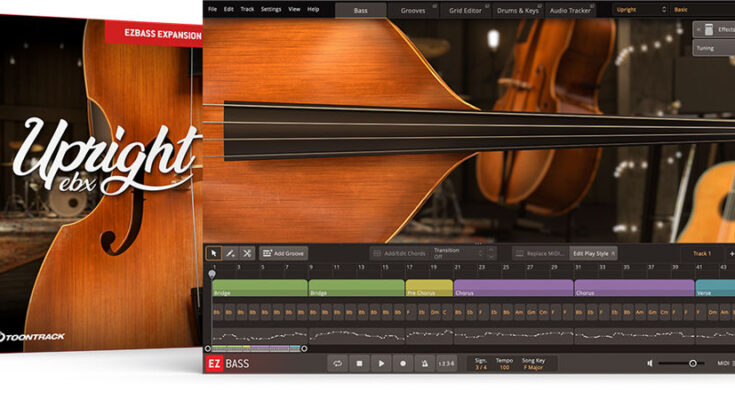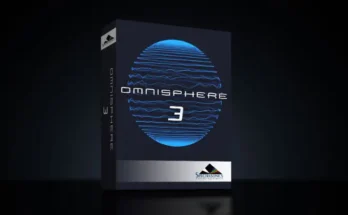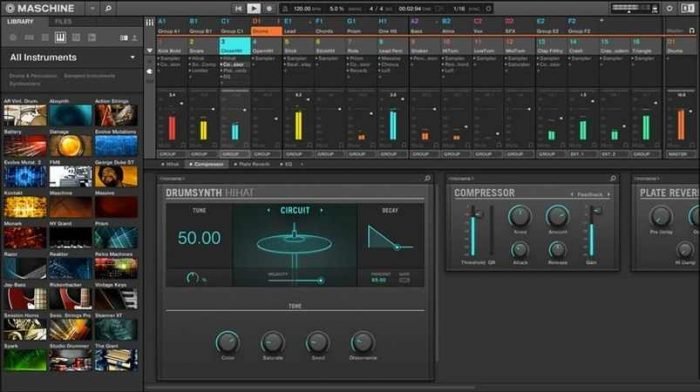Upright EBX v1.0.0 (SOUNDBANK)
P2P | 23 September 2021 | 267 MB
The iconic upright bass. Welcome to the definition of a timeless tone.
Double-bass, standup bass, contrabass, bass fiddle, violone or, as in our case, upright bass. Although it goes by many names, it’s one of those instruments that hardly needs one – you can distinguish it just at the strike of a note. The slightly muffled but still vibrantly resonant, earthy and dark timbre of the upright bass has seeped through every tier in our music history, from its first iteration several hundred years ago until today. Honestly, only one word carries enough weight to describe its incontestable role in music as we know it: timelessness.
The Upright EBX comes with a handpicked, acoustic upright bass, sampled to capture the complex and unique hallmarks of this classic instrument. In addition to the sounds, it also includes a broad selection of presets as well as a custom content of MIDI basslines.
Measuring six feet from scroll to endpin, but with a tone like a ten-story building, this is the embodiment of an ideal instrument for use in any jazz, rock, pop or general acoustic music composition where the bass is “plucked” and needs to cut through. Welcome to the mother of all basses – twice the size, double the action and, if you ask us, a downright upright delight.
FEATURE SPOTLIGHT
•A meticulously captured acoustic upright bass
•Recorded using an onboard piezo pickup as well as five different microphone configurations
•Includes a collection of presets covering a broad range of tones for various genres, styles and microphone blends
•Comes with a custom MIDI library tailored for the instrument and fretless/upright playing styles
THE INSTRUMENT.
Perfection in projection.
For any acoustic instrument, and particularly so for a one that has its predominant range in the lower frequency, projection is key. Frankly, a good instrument needs a voice that sings and cuts through. A Corsini Elite* by renowned Romanian instrument luthier Calin Wultur* proved to have exactly all those qualities and be the perfect match for the Upright EBX.
“Since we were after a plucked tone and a bass for a modern and ‘acoustic’ approach rather than a classical, a flatback seemed like the first logical step. However, the quality of an upright’s tone is a product of all of its parts combined – from the machine heads down to the tailgut – and the Corsini just sounded and felt right through and through,” comments Magnus Melkersson, EZbass lead R&D technician.
THE BASS WITH MANY NAMES.
A brief history of the double-bass.
Although its origins are debated, most hold to belief that the upright bass stems from the viola de gamba – a 15th century family of bowed string instruments not to be confused with the much younger viola. The name literally means “viol for the leg” in Italian, so one can assume that the intent was a viol-like instrument to be played on the leg as opposed to under the chin.
The earliest illustration dates back to 1516, but written accounts suggest even earlier instances. While the modern-day iteration of the instrument almost exclusively features four strings, the early instruments could have as much as up to six. Records also suggest that there were as many as up to 50 different tunings in use before the classic E-A-D-G method was adapted, which wasn’t until the early 20th century.
To sum up: Logically, a double-bass should have its counterpart in a single-bass – but it doesn’t. The name rather underlines the fact that its tone sounds two octaves below the middle C. But even that is up for debate. Some claim that the ‘double’ simply solidifies the fact that it was meant to double the violoncello in an orchestra. That too is up for debate, though.
Regardless of what we call it, where it originally comes from or whatever else that may be up for debate, any music lover would likely attest to the fact that this iconic bass with many names has etched its undeniable imprint in music as we
THE SOUNDS & ARTICULATIONS.
Seeing as this bass mainly is intended for use in jazz, rock, pop or general acoustic music compositions, it was sampled solely using the plucking (pizzicato) technique. To offer the broadest possible tonal options, both an onboard piezo pickup as well as five high-end microphones in different positions were used to capture the scope of the instrument’s monumental tone.
“To record an acoustic instrument of this stature and with this amount of body and natural low end, we experimented with numerous microphone types, positions and techniques to finally land on the perfect combination,” comments Ulf Edlund, EZbass lead sound designer.
To ensure maximum transparency and minimum ambient saturation, the bass was recorded in a relatively small room. This, combined with the elaborate microphone positioning scheme, makes for a genuinely organic, warm and tangibly vivid sampled instrument.
THE PRESETS.
The end goal with the presets was to offer a library of tones as broad but still as natural and true to the instrument as possible. In addition to saturation in the form of effects like compression, reverb and EQ, the presets also include mixes of microphones that blend the different natural tonal flavors they offer. Expect an array of options for anything from mellow jazz trio-type of tracks to any Americana, bluegrass, folk, indie, pop, rock or acoustic scenario.
SYSTEM REQUIREMENTS.
600 MB free disk space, 4 GB RAM (8 GB or more recommended).
A working EZbass 1.1.0 (or above) installation.




